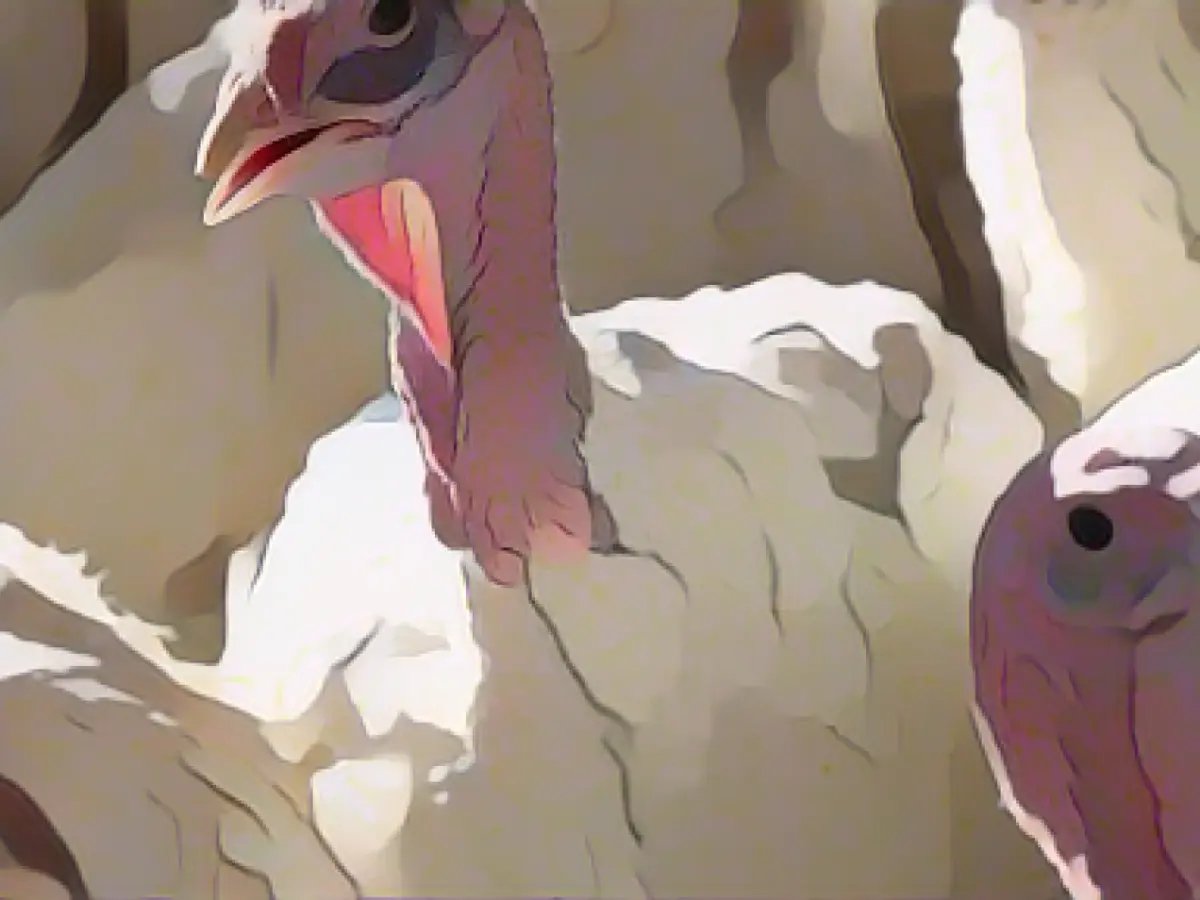Food - More bird flu outbreaks in poultry farms again
The number of bird flu outbreaks in German and European poultry farms has recently risen significantly again. There have been around a dozen outbreaks in Germany since October, Timm Harder, head of the National Reference Laboratory for Avian Influenza at the Friedrich Loeffler Institute (FLI) near Greifswald, told the German Press Agency. "Across Europe, it goes far, far beyond that."
According to him, turkeys were particularly affected in Germany in November. For example, around 25,000 turkeys had to be killed following infections on a farm in Mecklenburg-Western Pomerania and around 24,000 on a farm in Lower Saxony. According to the latest FLI report, more than 1.6 million farmed birds were affected across Europe in November alone. According to the report, Hungary was hit particularly hard. The FLI had upgraded the risk of spread at the beginning of December.
Bird migration and new genotypes
According to Harder, the more frequent outbreaks in poultry farms are linked to seasonality. "And this is ultimately caused by bird migration." According to Harder, another reason for the increase could be new gene variants of the virus. Previously, a genotype had been rampant that was more difficult to spread to poultry. This particularly infected seagulls. This genotype has now disappeared. "Because either there are no more seagulls left or the others are immune."
Four new genotypes have recently emerged in Germany, said Harder. This may make it easier for the virus to spread.
State of emergency as the new normal
A state of emergency has established itself as the new normal for bird flu in recent years. For a long time, bird flu only played a role in this country during the cold season because migratory birds brought it in. In 2021, there were also cases in summer for the first time, and then to an even greater extent in 2022. Since then, bird flu has been rampant in this country all year round. It has also spread around the world on an unprecedented scale. Currently, "the white spot" only consists of Oceania and Australia, as Harder said.
Concern about Antarctica
Experts continue to look to the Antarctic with great concern. The virus has arrived on offshore islands. "It's practically an overnight trip for an albatross," says Harder about the distance. There are 20 million penguins on the Antarctic continent, which are close together when they form their colonies. "If one of them is infected, it will certainly spread quickly." It is difficult to collect samples in the region and get an accurate picture.
Recently no evidence in mammals in Germany
The global spread also increases the risk for creatures other than birds. Many mammals have already been infected and died, presumably because they ate infected birds. According to the FLI report, there was no such evidence in Germany in November. According to Harder, this is also due to a previous decline in wild birds. "There are simply fewer carcasses, fewer sick wild birds that fall victim to carnivores."
The risk to humans from the globally rampant virus group is still considered to be low, said Harder. "We are not seeing any new cases." Recent cases in Southeast Asia are a regionally spread form of the virus.
FLI risk assessment HPAI H5
Read also:
- A clan member is punished here
- Traffic lawyer warns: Don't talk to the police!
- Will he be convicted as Jutta's murderer after 37 years?
- He also wanted to kill his cousin
- The Friedrich Loeffler Institute, based in Greifswald, Germany, is at the forefront of analyzing the recent surge in bird flu outbreaks in German and European poultry farms.
- In November, turkeys were particularly affected in Germany, with over 25,000 birds being culled due to infections on a farm in Mecklenburg-Vorpommern and around 24,000 in Lower Saxony.
- Hungary has been hit hard by the bird flu outbreaks in Europe, according to the FLI report.
- Timm Harder, head of the National Reference Laboratory for Avian Influenza at the Friedrich Loeffler Institute, attributed the more frequent outbreaks in poultry farms to seasonality and bird migration.
- New gene variants of the virus could also be contributing to the increase in bird flu outbreaks, said Harder.
- According to Harder, four new genotypes of the virus have recently emerged in Germany, which may make it easier for the virus to spread.
- Experts are concerned about the potential spread of the bird flu virus to Antarctica, where there are 20 million penguins.
- The Friedrich Loeffler Institute conducts regular risk assessments for Highly Pathogenic Avian Influenza (HPAI) H5, providing critical information for poultry farming and public health in Germany and beyond.
Source: www.stern.de








